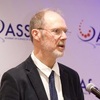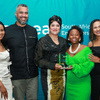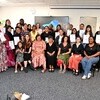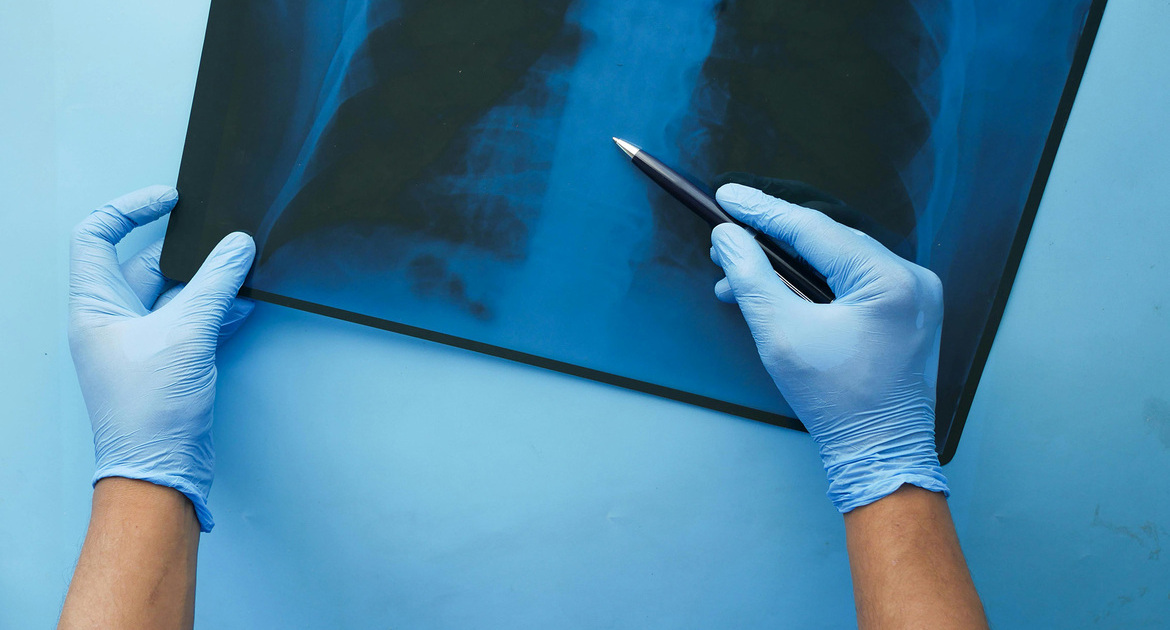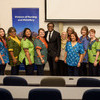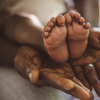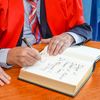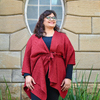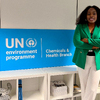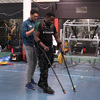Bold, inclusive, African-centred: the HPALS way
10 September 2025 | Story Natalie Simon. Photos Supplied. Read time 7 min.
The University of Cape Town’s Health through Physical Activity, Lifestyle and Sport (HPALS) research entity currently ranks 25th globally in the Shanghai Global Ranking in Sport Science Schools and Departments. Through HPALS, UCT is also one of nine universities on the leadership council of the recently formed Global Sports University Network, one of two universities from the global south and the only one from Africa. This work’s impact puts the university and the continent on the map.
Formally established in 2018, HPALS is one of UCT’s youngest research centres but already among its most visible internationally, enjoying a high-level of engagement globally, according to director, Associate Professor Yumna Albertus. Its work spans the full spectrum of human movement and health – from genetics to biomechanics, rehabilitation, sleep science, nutrition and community interventions. At its heart is a belief that physical activity and lifestyle are powerful levers for health, wellbeing and performance.
“These global engagements are part of our mission to ensure that the spark ignited in Cape Town expands into a lasting, far-reaching impact on science, education and human potential worldwide,” said co-director, Professor Alison September.
HPALS is not the only sports science research group in Africa, but its impact, both social and academic, exceeds that of many better-resourced peers. The group has a very high citation rate and publishes in top-tier international journals, but beyond that, their impact on policy is very strong.
The directors attribute this success to two things: an ethos of boldness which drives their research questions and a philosophy of placing humans at the centre of their work.

Breaking barriers, making waves
Associate Professor Albertus, an exercise physiologist, embodies this boldness through her focus on technology for rehabilitation in an African setting. In 2018 she led a randomised control trial on robotic exoskeletons – the first of its kind in Africa. Through collaboration with the Walking with Brandon Foundation, HPALS acquired a robotic exoskeleton and ran a 24-week trial, far longer than the usual six-to-12 weeks, to test whether the suit could retrain neural networks.
“Africa has a significant population – we cannot be excluded because of lack of infrastructure.”
“It was a fight to get the work published,” said Albertus. “Many journals told us the sample size was too small, but I pushed back. Africa has a significant population – we cannot be excluded because of lack of infrastructure.”
The work, later published in Archives of Physical Medicine and Rehabilitation, catalysed further projects exploring how technology can be used and democratised in Africa.
Professor September, recognised as a second runner-up in the distinguished women researchers in the 2025 Department of Science and Innovation Women in Science Awards and fellow of the prestigious National Academy of Kinesiology in the United States of America, tells a similar story of research against the odds. Her focus is on the genetics behind soft tissue injuries. She and Professor Malcolm Collins lead an international consortium in this field.
When September first proposed twin studies to identify genetic markers, collaborators said it was impossible.
“So I went off and did it on my own,” she said. “Now I have been invited to Italy to collaborate on a project with 20 families with twins who have ruptured the anterior cruciate ligament.”
Both directors stress that this kind of bravery defines the HPALS ethos.
“Associate Professor Dale Rae, for instance, is setting up the first sleep science research at UCT,” said Albertus. “It is about taking an idea, following through and then setting a new bar.”
Putting humans at the centre
Another key to their success is the diversity of their research groups. It is common practice at HPALS to include patients and community members as part of the research team, ensuring the questions remain relevant.
One example is a project run by Emeritus Professor Vicki Lambert with Senior Research Officer Dr Feyisayo Wayas and Associate Professor Olufunke Alaba. Called Youth Engagement for Better Outcomes: Sleep & Social networks, Physical Activity and Nutrition (YEBO-SPAN) – “Future proofing” South African Adolescents, the project has researchers working with grade nine and 10 learners from six diverse schools to develop interventions addressing common risk factors. These include poor sleep and nutrition and low physical activity. The project also incorporated engagement with the Western Cape Department of Health to pilot the feasibility of embedding citizen science into the Life Orientation curriculum.
“When we place the human at the centre of our research, using physical activity to promote health, wellbeing and quality of life, we create research that is inclusive and excellent.”
Albertus notes the importance of feedback from people living with spinal cord injuries in her own research. While many assume the priority is to walk again, patients often say independence matters more – improved handgrip or better wheelchair design.
“When we place the human at the centre of our research, using physical activity to promote health, wellbeing and quality of life, we create research that is inclusive and excellent,” said Albertus. “It is this focus that drives our impact and ensures the strength and relevance of what we do.”
Leading from Africa
Both Albertus and September hail from the Cape Flats, an area of Cape Town known for its poverty and violence. They agree that their own journeys to UCT, navigating the challenges of straddling these two different worlds, have profoundly shaped their vision for HPALS.
HPALS is not only putting UCT on the global sports science map but also showing what it means to lead from Africa – creating knowledge, networks and impact that extend far beyond the continent.
“We see HPALS as the starting spark of a fireworks display,” said September. “Beginning here in Cape Town, with the ambition to radiate far beyond, illuminating Africa and the world with opportunities, networks, and pathways for our members, fellows, and postgraduate students to thrive.”
 This work is licensed under a Creative Commons Attribution-NoDerivatives 4.0 International License.
This work is licensed under a Creative Commons Attribution-NoDerivatives 4.0 International License.
Please view the republishing articles page for more information.
Faculty of Health Sciences News

Researchers argue for using “informed proxy consent” or “relational autonomy consent” in human aDNA research.
12 Nov 2025 - 7 min read Republished


